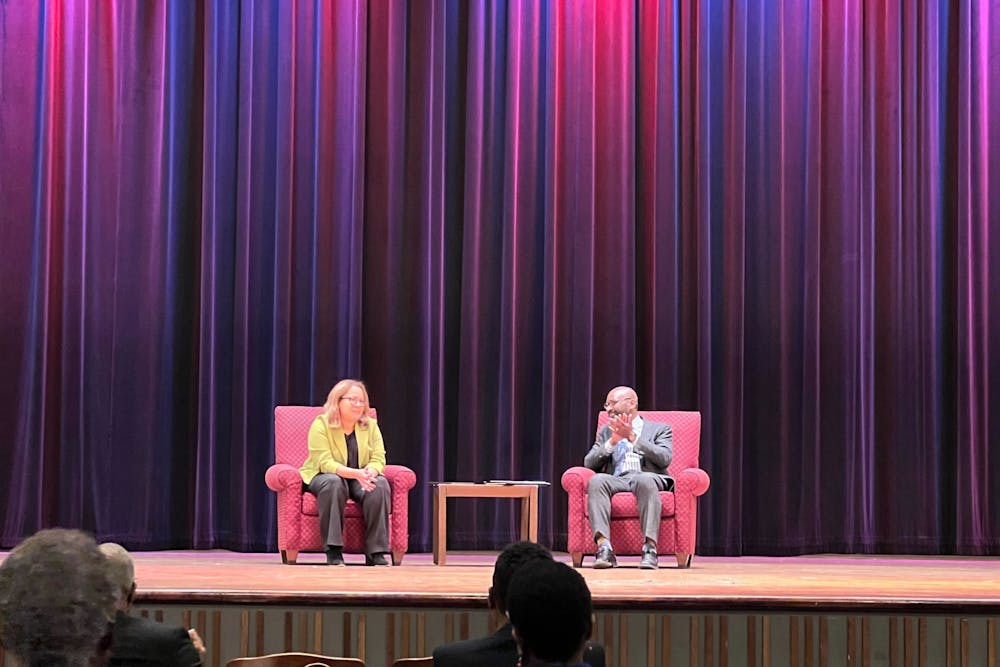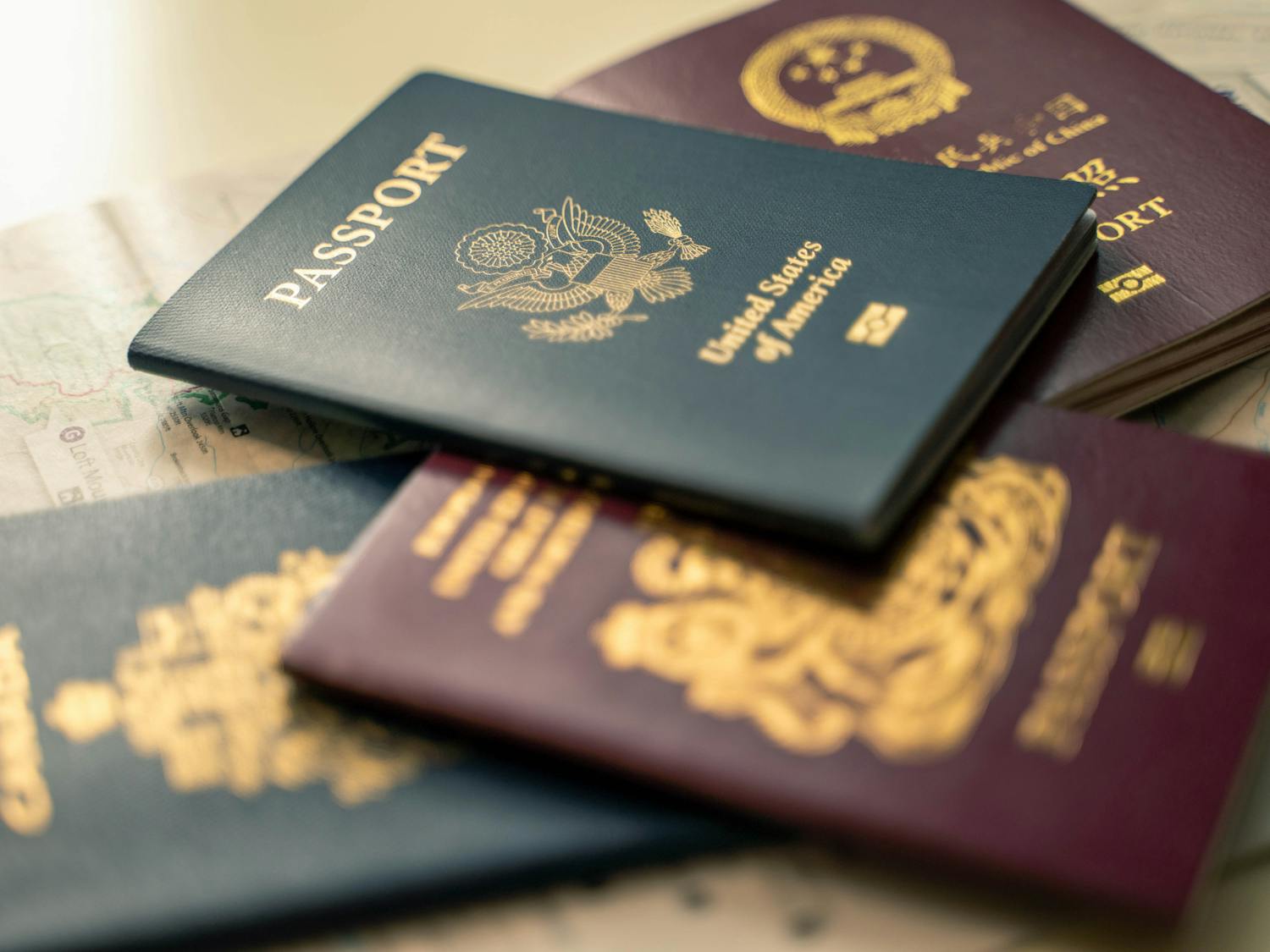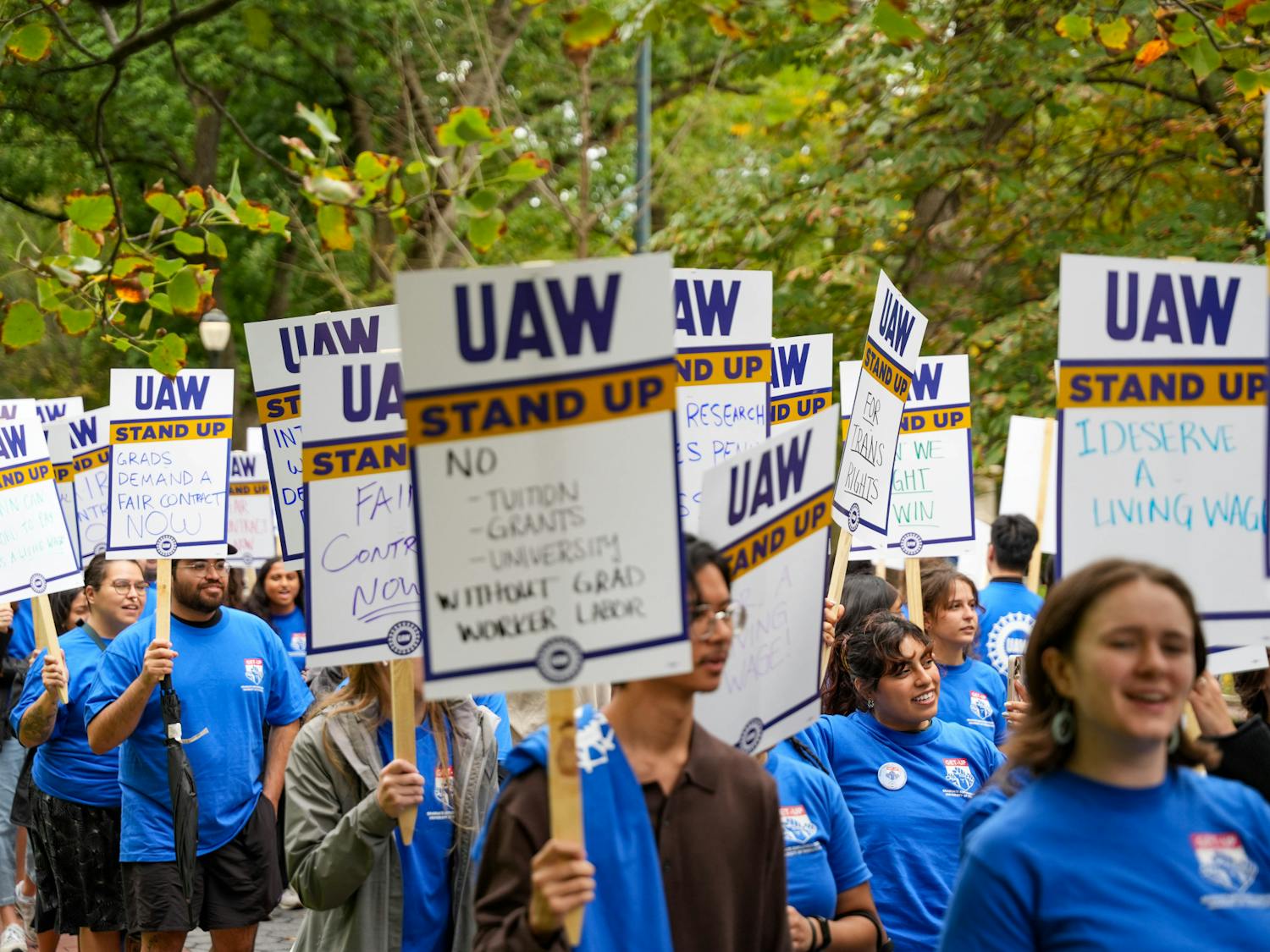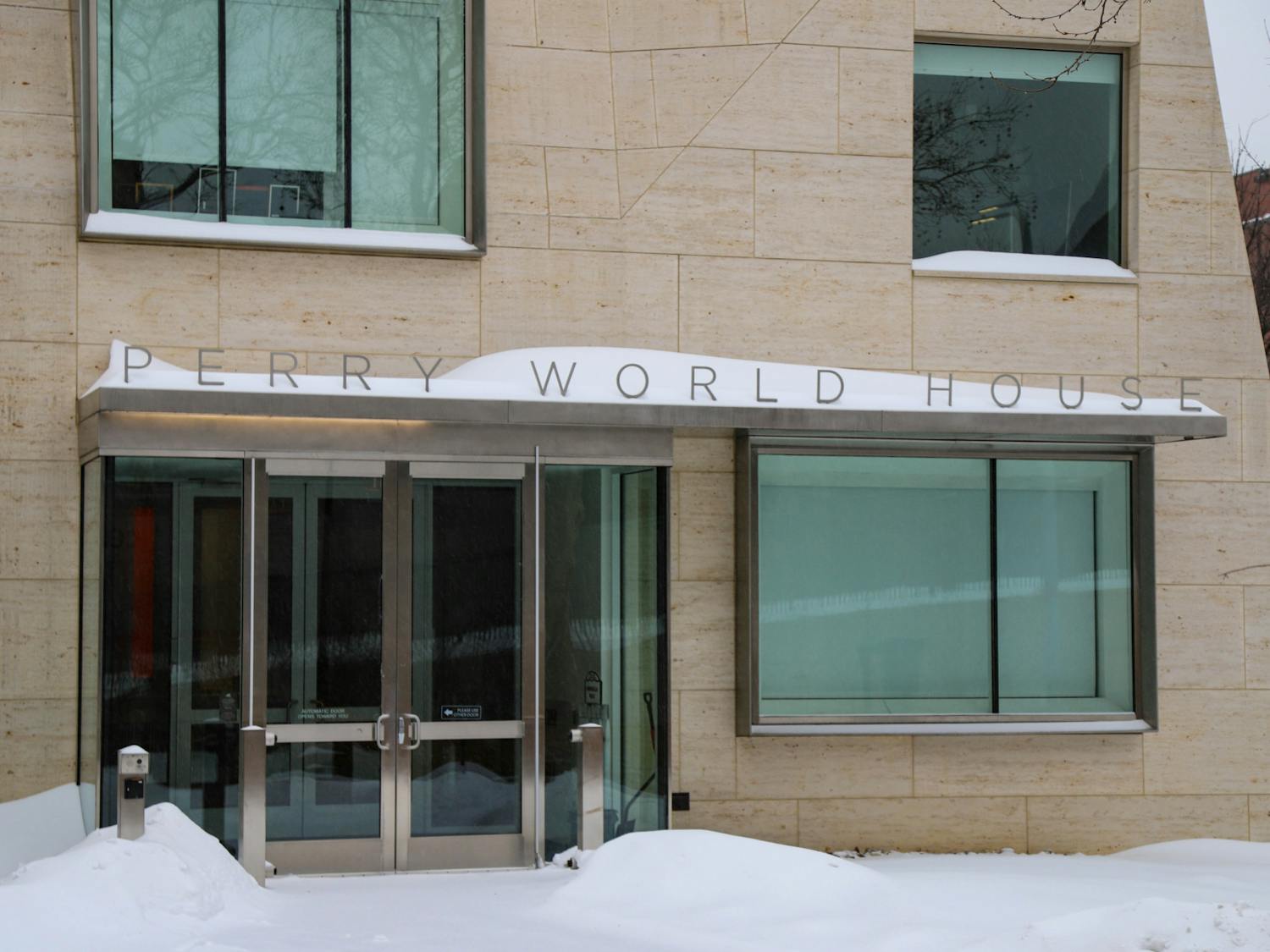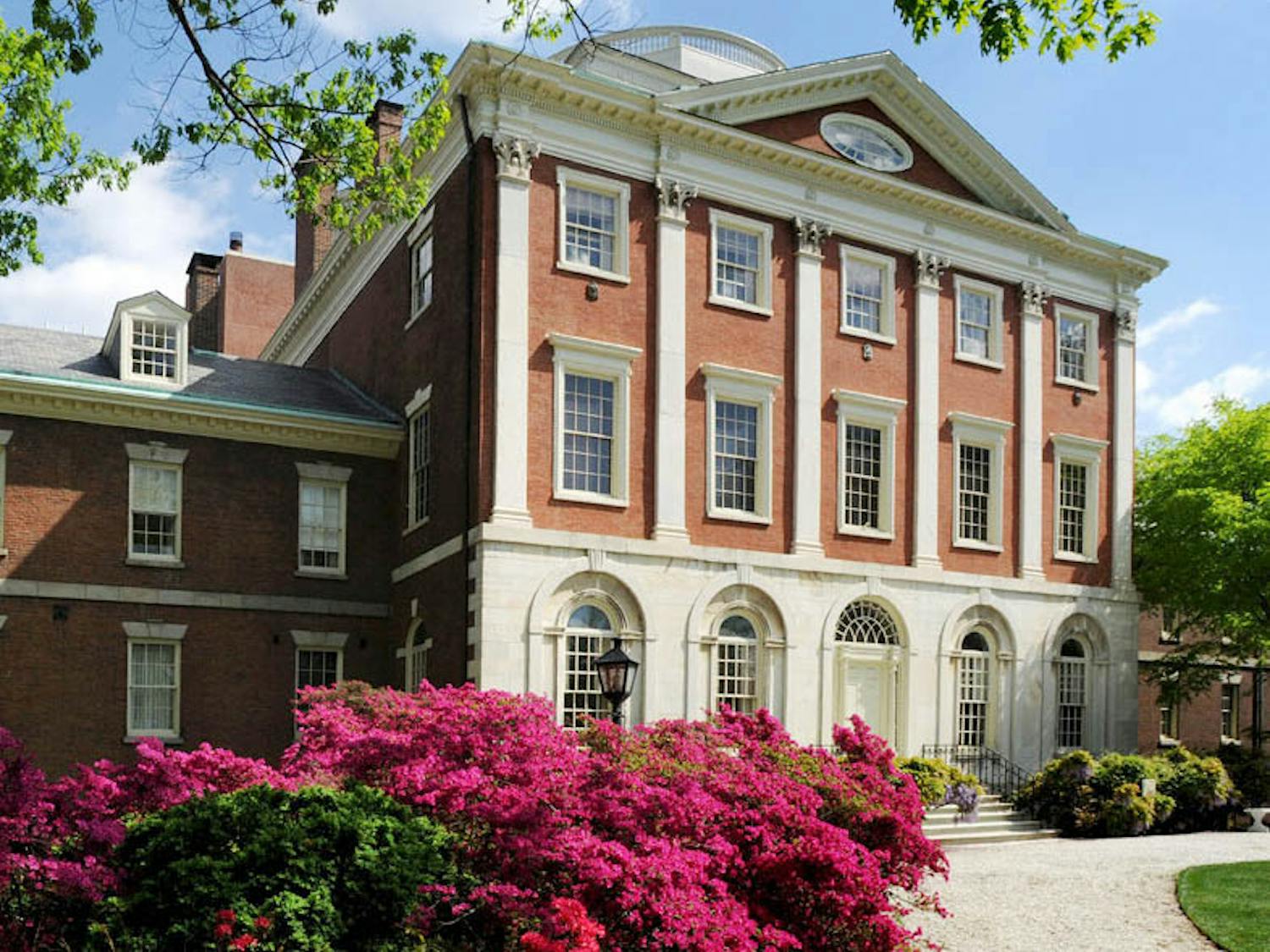1994 College graduate Erica Armstrong Dunbar discussed the importance of recognizing suppressed voices in American history in her lecture “Truth be Told: Black Women and the Making of a Democracy.”
Annenberg School for Communication Dean John Jackson hosted the event in Irvine Auditorium — where Dunbar, a Rutgers professor, spoke about the neglected history of Black women’s roles in the development of the nation and the necessity of telling all sides of their stories.
“It is my responsibility to inject and complicate what’s been a very two-dimensional narrative about Black people in this nation, that spills over into some of the issues we still grapple with today,” Dunbar said during the lecture.
The lecture was a part of America 250 at Penn, an event series organized by University departments including Penn Libraries, University Archives, and the Division of the Vice Provost for Student Engagement. The initiative aims to uncover how the United States in 2022 encompasses the values it was founded upon and how these values can be used to guide the future.
Vice Provost for Student Engagement and Distinguished Senior Fellow at the Graduate School of Education Valarie Swain-Cade McCoullum has known Dunbar since her first year at Penn through the Mellon Mays Undergraduate Fellowship program. McCoullum recommended her as a speaker for the program to highlight Penn’s diversity and promote conversation about the unique voices and identities that make up the school.
“Our University of Pennsylvania in 2022 is a beautifully diverse, exciting and vibrant community of scholars — including students, faculty, and staff — who are from West Philly, Philly, the nation, and the world,” McCoullum said. “Hearing from as many people about the history and prospects at Penn from their perspective is really exciting as the nation approaches the 250th anniversary.”
Dunbar, who is also the National Director of the Association of Black Women Historians, received her B.A. in history and Afro-American Studies at Penn and a Ph.D. at Columbia University. She is one of the few Black women scholars studying Black women’s history during and after the Civil War.
Through her research of authentic stories of Black women’s experiences in America, including that of an early Black settler named Alice, Dunbar aimed to introduce the audience to the lesser-known narratives of America’s foundation.
RELATED:
Penn Carey Law group Students for Justice in Palestine hosts 'Unraveling Zionism' panel
Leaders of three new disability-related student groups talk initiatives, missions, advocacy
“Alice watched a city and a nation boast liberty and opportunity all the while she spent her living days enslaved in the hinterlands of the City of Brotherly Love. Her life is emblematic of many things: a flaw to democracy, contradictions of the rhetoric around the laws regarding freedom and independence, but it is also emblematic of strength, perseverance, and survival,” Dunbar said.
Dunbar added that there are challenges when it comes to sharing the complex and hidden lives of Black women as they can contradict the mainstream understanding of history.
After receiving hateful letters and death threats for publishing an op-ed about Ona Judge — a slave who escaped servitude from George Washington — Dunbar said she was tested on her role as a scholar and historian.
“If that many people were going to act in ways that were evil and violent over the truth, I was obligated to tell the story, to have us rethink the founding of the nation,” Dunbar said. “It was my job to try and tell an objective, complicated narrative about the founding of the nation not through George Washington’s eyes, but through the eyes of this Black woman.”
Many audience members said they resonated with her message, including English and Africana Studies professor Herman Beavers.
“Listening to Professor Armstrong Dunbar talk about looking at the same documents that other historians have uncovered and left out, [it showed] that there’s all kinds of knowledge and perspectives out there that we haven’t bothered to invest in that might completely change how we think about something that we think is a settled issue,” said Beavers. “You have to figure out how to make space for that, and she’s doing it.”
Concluding the lecture by describing her experiences as the co-executive producer of the HBO series “The Gilded Age,” Dunbar redefined the perceived role of historians in the context of the digital age. By transitioning from a historical fact checker to a producer, Dunbar used her expertise to develop a more accurate portrayal of the American Gilded Age.
This meld of history and media in Dunbar’s career inspired College sophomore Adeoluwa Fatukasi to attend the event.
“She is at the intersection of what I want to study,” Fatukasi said. “Looking into her work scene, I noticed that she puts storytelling at the forefront of her historical research and that she’s also using her education and Ph.D. to inform pop culture. That is something I feel like I want to do — combining that practicality of communication and the theory and the ideas of the history of Africana Studies.”


